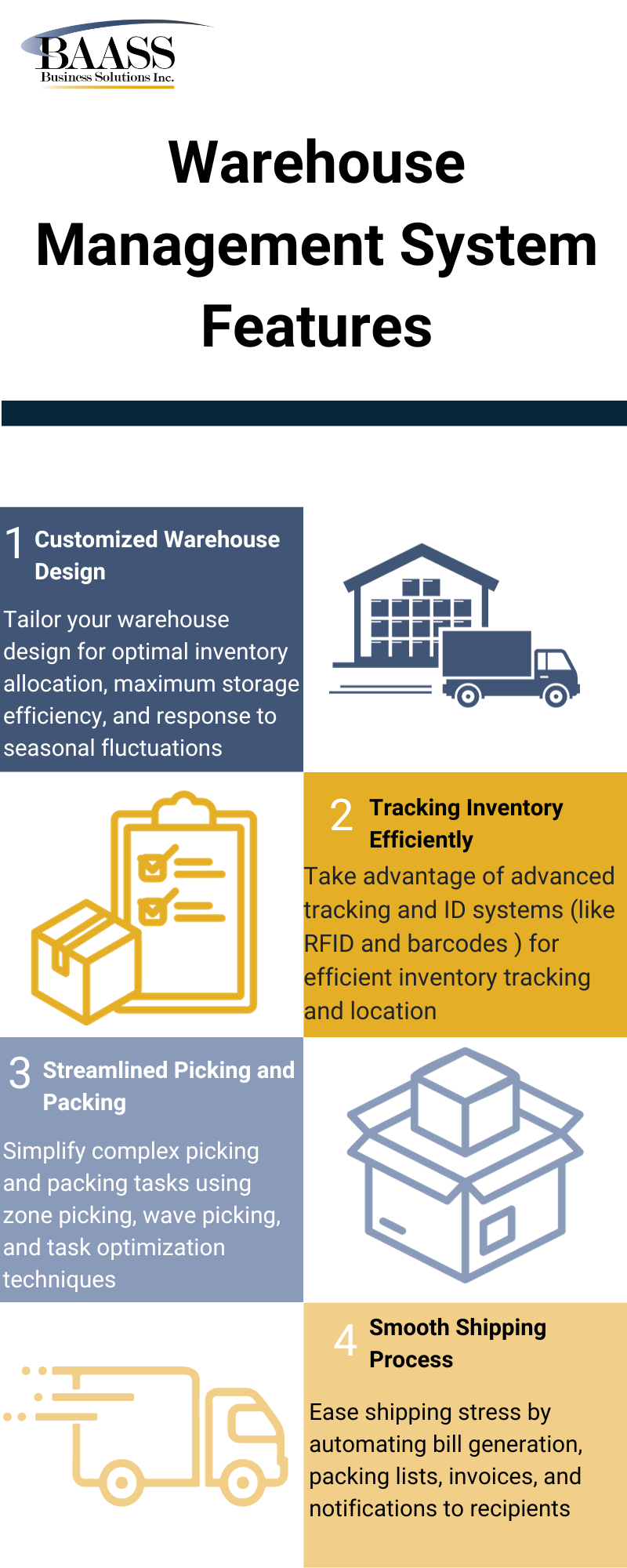Warehouse Management System (WMS) has become an invaluable tool for manufacturing and distribution companies attempting to maximize warehouse operations. Let's explore some essential functions and suitable criteria for picking the correct WMS. If you desire a further in-depth understanding of WMS and solutions, speak with a WMS expert today.
What Does a Warehouse Management System Do?
A Warehouse Management System is a solution developed specifically to coordinate all activities within a warehouse, enhance efficiency, reduce errors, and ultimately provide superior customer service.
Warehouse Management System Features
Customized Warehouse Design: Tailor your warehouse design for optimal inventory allocation, maximum storage efficiency, and response to seasonal fluctuations.
- Tracking Inventory Efficiently: Take advantage of advanced tracking and ID systems (like RFID and barcodes ) for efficient inventory tracking and location.
- Streamlined Picking and Packing: Simplify complex picking and packing tasks using zone picking, wave picking, and task optimization techniques.
- Smooth Shipping Process: Ease shipping stress by automating bill generation, packing lists, invoices, and notifications to recipients.
These four standout features will make a warehouse manager's job a breeze. For warehouse solutions and tips check out BAASS’s previous blog onWarehouse Management Tips: Picking and Packing.
Top 4 Criteria's to Consider When Selecting Your WMS Solution.
1. Compatibility with Existing Systems
To ensure optimal results from your WMS selection, ensure it can integrate easily with existing systems like an Enterprise Resource Planning (ERP) system such as Sage 300.
2. Scalability
Choose a WMS that can keep up with your business as it grows; an ideal system would easily accommodate an increase in volume without experiencing issues or downtime.
3. User-Friendly Interface
It is vital to the smooth adoption by your warehouse staff. A system should be intuitive, eliminating the need for extensive training sessions.
4. Integrating E-commerce Platforms
Integrating your WMS with various e-commerce platforms will ensure that online orders seamlessly integrate into warehouse operations.
Conclusion
Warehouse Management Systems are indispensable solutions for modern businesses looking to optimize their warehouse operations. Not only can WMS improve inventory control and reduce labor costs, but it can also contribute to improved customer satisfaction. Its future also holds many exciting possibilities, such as increased automation, AI integration, and sustainable practices. To learn more about warehouse management system benefits, click here to speak with a WMS expert today.

.png)